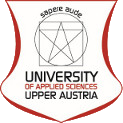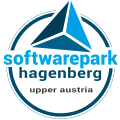Center of Excellence for Smart Production
Funded by: FH OÖ
Intelligent production processes lead to intelligent products. Such products are not only guarantors but also the prerequisites necessary for businesses to remain competitive in the future. As an innovative business partner, the Center of Excellence for Smart Production is specialised in research and transfer related to intelligent production. The coordination and networking of all relevant departments facilitates a lively exchange of information between the campuses in Hagenberg, Steyr and Wels with regard to R&D as well as bachelor’s and master’s theses. Pilot projects or demonstrations on the theme ‘Innovative Applications of Industry 4.0’ are examples of the work carried out together with Upper Austrian businesses.
The Center of Excellence for Smart Production focuses on the following three areas:
Distributed intelligence and adaptive production systems
It is through the ‘Internet of Things and Services’ that orders, machines, tools, equipment, means of transport, and products become ‘smart’. This means that the ‘things’ can identify their status and communicate with each other, store rules, behavioural patterns and decision trees, and can make decentralised, intelligent decisions. The goal of this area of work is to research models making the best use of distributed intelligence for planning, processes, control, production systems and facilities.
» Adaptive planning and control: Customer-driven, decentralised decision-making mechanisms, integrated escalation mechanisms, event-controlled, anti-fragile, modular, adaptive, self-optimising, self-configuring, scalable and self-learning
» Adaptive processes and production: Adaptive and self-configuring process automation as well as data acquisition systems with intelligent plug-and-play components; intelligent maintenance systems
» Adaptive systems: Flexible, scalable, modularised and reconfigurable systems, machines and tools; methods for automatic adaptation to changed conditions, especially material or product changes, changes in quantities and disruptions
» Maturity model Industry 4.0 including benchmark database: Process modelling and assessment for the determination of actual and target positions of a company along the following dimensions—use of distributed intelligence, continuous data and models and adaptive production systems
» Innovative forecasting methods: Improving forecast quality and long-term production planning; utilising the potential of novel information technologies from suppliers and customers
» Robust and stable planning methods: Simulation and optimisation of production processes, including production planning and control, taking robustness and stability into account
Virtualisation: modelling, simulation and optimisation
Real processes in production and logistics often have a very high degree of complexity. In traditional approaches, the processes are therefore subdivided into subproblems. The aim of this work is to enable a holistic view of the processes by developing and, in particular, combining innovative modelling, simulation and optimisation approaches as well as to exploit optimisation potential with regard to flexibility, resources and efficiency. In addition, the ever-increasing volatility of modern production scenarios has given rise to new requirements with regard to real-time capability and prediction modelling. A multidisciplinary merging of modern trends from the field of information and communication technology is necessary in order to meet these demands.
» Integration of real and virtual data: Merging of a variety of real as well as virtual sensor values, sales and demand forecasts as well as the tracking of vendor-produced components in real-time (Internet of Things) for a holistic view
» Predictive modelling using large data sets (Big Data): Processing and structuring of the resulting data sets to make them useful for predictive modelling
» Hybrid approaches to simulation and optimisation in real time: Development of new hybrid simulation approaches that merge process data and sensor values of the real and virtual world into a holistic, real-time and dynamic model of cyber-physical systems; development of new approaches for optimisation on the basis of a harmonised modular and generic model which enables real-time cooperation of partially optimised components and thus allows for integrated control of the optimisation process
» Visualisation and analysis of process data: Graphic processing and analysis of process data from real and virtual sensor networks
Advanced manufacturing and generative manufacturing
In recent years, three megatrends have gained great importance in nearly all industries: scarcity of resources, shortening of product life cycles and individualisation of products. The manufacturing sector has had to respond to shorter development cycles and a growing competition for raw materials. The development of efficient and intelligent products is more important than ever before. As a result, the number of component variants is on the rise while batch sizes of individual components are simultaneously decreasing. Generative manufacturing processes (3D printing, additive manufacturing) can serve as key technologies for addressing these challenges and the already existing time pressure of shortened product life cycles.
» Integration of generative manufacturing into automated processes: Development of business models for the commercial use of generative manufacturing; development of an adaptive concept for economic fluctuations; development of automation for an SLS system; integration of SLS systems into the entire process chain
» Intelligent processes, products and tools: Development of sensors for their implementation in products during generative production with the aim of online tracking and communication with other products; development of new generation technologies (high-speed generation); development of generative production processes for automated processing of composites and hybrid components; development of new materials with increased carbon content for processing by SLS; processing of bio-plastics
» Quality and safety standards: development of security standards for encryption of data transmissions between customers and manufacturers; integration of computed tomography for quality control of generatively manufactured products


